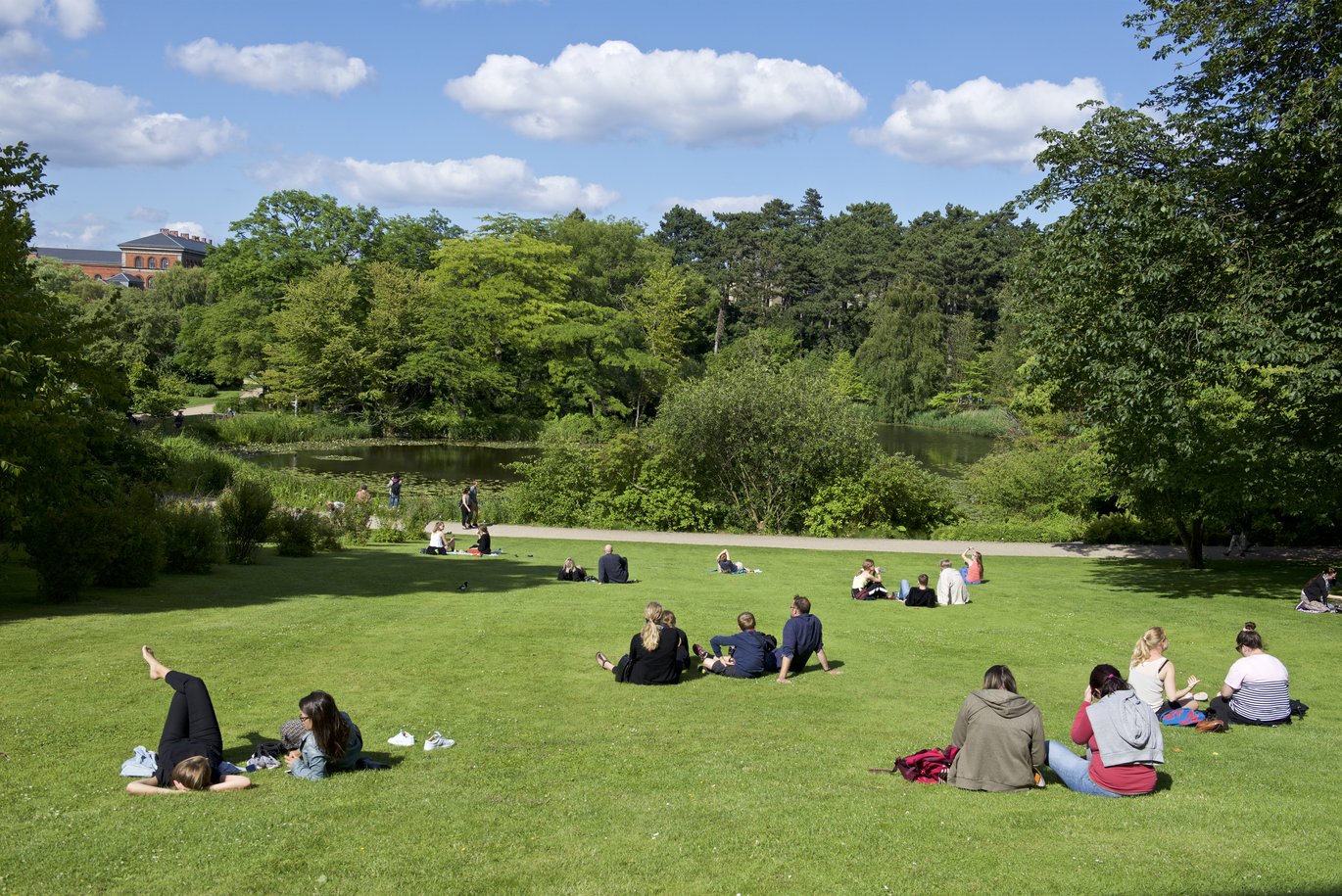Researchers: Urbanisation amplifies climate change through increased soil emissions
The study shows that urban green areas contribute significantly to greenhouse gas emissions, exacerbating climate change. Implementation of nature-based solutions may help to mitigate emissions.

Increasing populations and the search for social and economic opportunities are driving people to move from rural to urban areas. Approximately four percent of the global area is urbanised and half of the world’s population lives in urban areas. Natural ecosystems are converted into urban landscapes dominated by residential areas with interspersed green areas such as parks or lawns.
“Such conversions affect ecosystem functions and impacts biodiversity, ecosystem services such as provision of clean water as well as the function of such ecosystems as climate regulators,” says Professor and Head of Center Klaus Butterbach-Bahl from the Pioneer Center Land-CRAFT at Aarhus University.
In a new study he and his colleagues shed light on the impact of urbanisation on climate change. The study reveals that urban greens are not only sources of greenhouse gas emissions (GHG) but that through altered soil processes the intensity of emissions are increasing. The findings highlight the urgent need to consider sustainable management of urban greens to mitigate effects of urbanisation on our climate.
Urbanisation can exacerbate climate change
The study delves into the intricate relationship between urbanisation, soil GHG emissions, and climate change. The researchers behind the study conducted a comprehensive literature to understand how soil emissions of greenhouse gases, specifically of nitrous oxide (N2O) and methane (CH4), may change due to urbanisation.
“Our findings suggest that urbanisation significantly affects soil processes and emissions, leading to increased nitrous oxide emissions and reduced methane uptake by soils,” Klaus Butterbach-Bahl says.
Nitrous oxide is a potent greenhouse gas, contributing to climate change and stratospheric ozone depletion, while methane is a powerful but short-lived greenhouse gas that has a warming effect. By altering these emissions, urbanisation can potentially amplify the adverse impacts of climate change.
Professor Klaus Butterbach-Bahl emphasises the significance of the research:
"Our study shows that urbanisation can exacerbate climate change through changes in soil emissions. Urban green areas are hotspots for greenhouse gas emissions, and the transformation of natural landscapes into intensively managed green areas intensifies these effects."
Nature-based solution is one solution
The research highlights several key findings. Firstly, urban soils exhibit significantly higher nitrous oxide emissions compared to rural areas. These emissions are primarily attributed to increased nitrogen deposition, with reactive nitrogen compounds being released during fossil fuel combustion processes and altered soil conditions such as compaction resulting from urban development. Secondly, the conversion of natural land into urban areas reduces the soil's ability to uptake methane, leading to higher atmospheric concentrations of this greenhouse gas.
“The implications of these findings are far-reaching. With rapid urbanisation being a global trend, our results underline the urgent need for sustainable urban development and land management practices. Efforts should be directed towards implementing sustainable management of urban green spaces such as avoidance of additional fertilizer applications to lawns, promotion of urban agriculture to compensate for loss of agricultural land, and to increase number of trees in urban areas to promote atmospheric CO2 sequestration. These nature-based interventions can help sequester carbon, reduce emissions, and enhance the resilience of urban environments."
Need for sustainable urban planning
The study also provides policymakers and city planners with crucial insights into the environmental consequences of urban expansion. By prioritising sustainable urban planning, cities can adopt strategies to reduce greenhouse gas emissions, increase carbon sequestration, and enhance overall environmental quality. According to the researchers these efforts will be vital in combating climate change and creating liveable cities for future generations.
"There is an urgent need for sustainable urban development practices and the implementation of nature-based solutions. Cities must embrace sustainable practices to curb greenhouse gas emissions, protect our environment, and secure a better future," Klaus Butterbach-Bahl says.
| ITEM | CONTENT AND PURPOSE |
|---|---|
| External collaborators | Department of Agroecology – Pioneer Center Land-CRAFT at Aarhus University, Chinese Academy of Sciences, City University of New York, Beijing Institute of Landscape Architecture, Ministry of Transport in Tianjin China, and Karlsruhe Institute of Technology. |
| External funding | This work was financially supported by the National Natural Science Foundation of China (41977282 and 42177217) and the Beijing Key Laboratory of Ecological Function Assessment and Regulation Technology of Greenspace. |
| Conflict of interest | None |
| Link to the scientific article | The publication “Urbanization can accelerate climate change by increasing soil N2O emission while reducing CH4 uptake” is published in Global Change Biology. It is written by Yang Zhang, Zhisheng Yao, Peter M. Groffman, Junfei Xie, Yan Wang, Guangtao Li, Xunhua Zheng, and Klaus Butterbach-Bahl. |
| Contact information | Professor and Head of Center Klaus Butterbach-Bahl, Pioneer Center Land-CRAFT, Department of Agroecology, Aarhus University. Tel.: 93508238 or e-mail: klaus.butterbach-bahl@agro.au.dk |
